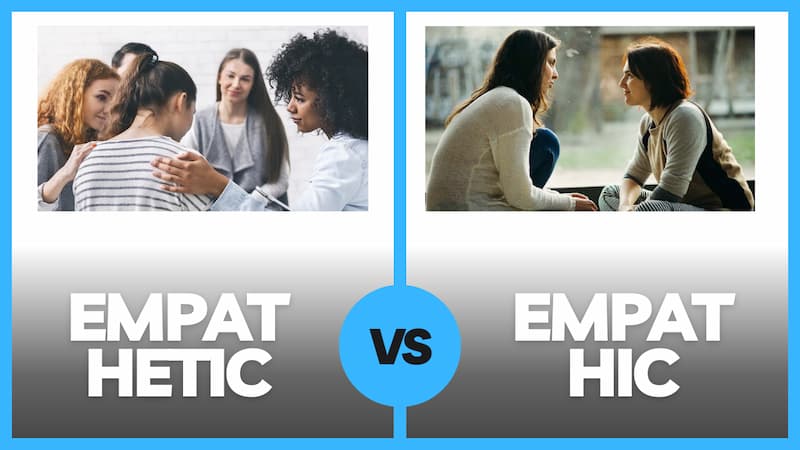
Empathetic Vs Empathic: What’s the Difference?
Many people would feel confused when using empathetic and empathic. What ‘s the difference when talking to empathetic vs empathic? Read on.
When it comes to empathetic vs empathic, some people make the distinction that the word empathetic should be used to describe an ordinary person who has empathy for others, while empathic should be used to describe an empath. However, since both words are regarded as being grammatically acceptable, you are free to use whichever one you prefer.
Table of Contents
Empathetic Vs Empathic
Empathic is usually just a variant of empathetic, which means characterized by empathy. Some dictionaries, especially American ones, list empathic as the standard word and empathetic as the variant, but while the shorter word is indeed the original, empathetic has prevailed—probably due to analogy with sympathetic, with which it is often closely associated—and is now about five times as common as empathic in newswriting, blogs, and mainstream books from throughout the world that speaks English.
But there are limitations to this. While empathetic has prevailed in popular usage, the older, shorter form is still preferred in scientific writing, including writing on psychology, where the word has a breadth of meaning not fully captured in popular usage. Empathic is also favored in certain types of nonscientific writing, including modern spiritual writing and self-help writing. Meanwhile, empathic has developed the latter-day sense very in tune with the thoughts and feelings of others, which it does not share with empathetic. This sense is primarily limited to writing about purported psychic abilities in pseudoscientific journals.
When to Use Empathic

What does the word “empathic” mean? Empathic is an adjective. It means having the ability to take another’s perspective. In everyday speech, it also typically implies sensitivity to other people’s feelings.
For example,
- Julie has a great capacity for empathy.
- In some professions, having empathy may not be advantageous.
- Through the use of skills acquired in the first five years of life, typical children develop a theory of mind, at which point they start to demonstrate rudimentary empathic abilities.
- The more empathic people, however, learned things more quickly when it came to getting rewards for other people.
When to Use Empathetic

What does the word “empathy” mean? Empathetic is a variant of empathic. It likely found popularity as an analogy to the word sympathetic. It has never been as widely used as empathy. You can see the usage of empathic vs. empathetic in the graph below.

This graph isn’t precisely accurate in science. Other print sources like newspapers, journals, and other periodicals are not used; only books written in English since 1800 are. Nevertheless, it is still helpful for determining a long-term trend. As you can see, since the early 20th century, when both of these words first became well-known, empathic has been the preferred term.
Summary
Which is it: empathetic or empathic? Empathic and empathetic are adjectives, and are two words for the concept of being able to adopt another person’s perspective and emotions.
- Empathichas been, and still is, the accepted variant.
- You can remember to avoid empatheticsince it contains the word pathetic, and you should try not to be pathetic in your writing.
If you need help remembering whether to choose empathetic or empathic, you can always refer back to this article for a refresher.


